AIPS Updates
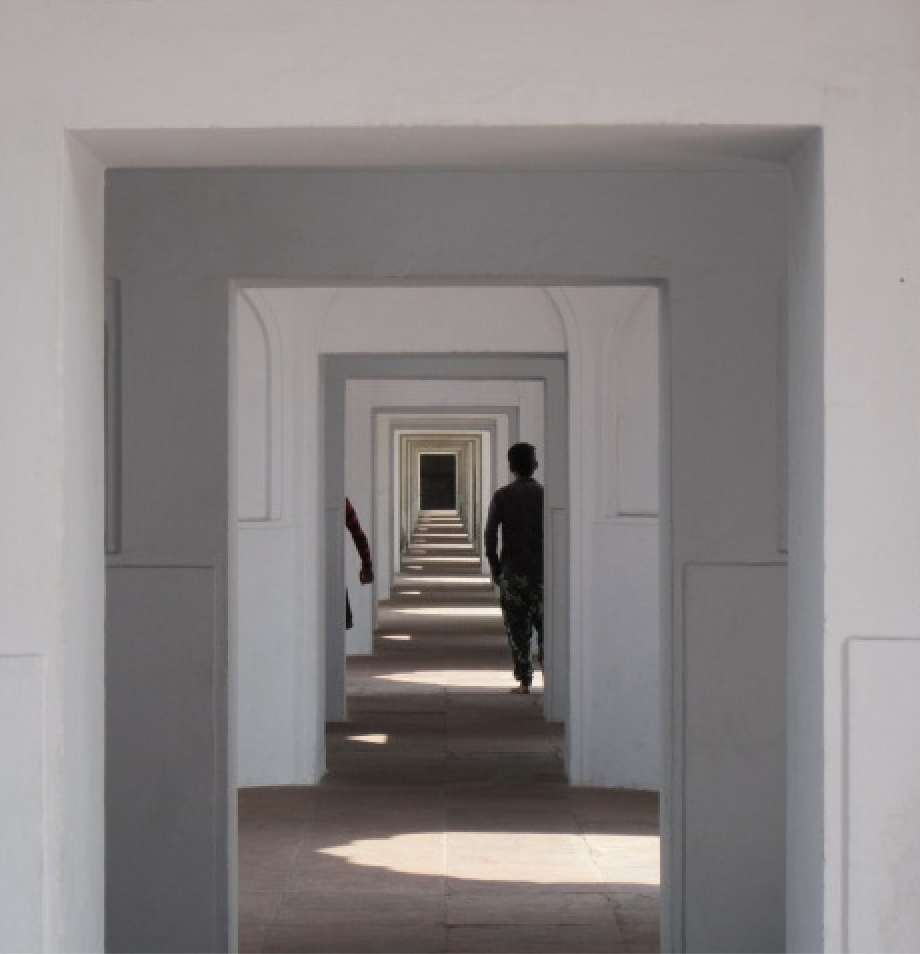
Introduction to Urdu Language & Culture
AIPS will be hosting the 10-week “Introduction to Urdu Language and Culture” online course in 2026 (dates TBD). Enrollment will be open to all interested in exploring Urdu language and culture. To receive information and updates about this course, subscribe to our email list! Please see the AIPS website for more details about the course. Photo of Badshahi … Read more

2025 AIPS Newsletter
The annual AIPS Newsletter is now available on our website! AIPS was busy this past year. As noted in the Newsletter, we signed 13 MOUs with universities across Pakistan. We also welcomed Dr. Aalia Sohail Khan as the new Director of the AIPS Islamabad Office and hosted our fourth Introduction to Urdu Language & Culture online course. Members … Read more
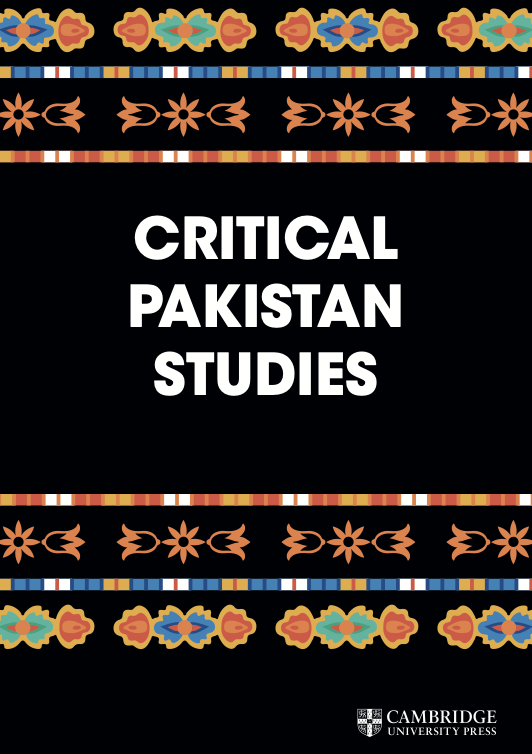
CPS Journal Articles
The journal of Critical Pakistan Studies has published several new articles that are available on the Cambridge University Press website: Memorializing the Nation-State: Minar-e-Pakistan between Memory and HistoryHashim Ali Border Bureaucracy and Discourses: Demarcation and Surveillance of the Punjab Border in the Wake of 1947 PartitionIlyas Chattha Seventy-five Years of Partition: Rupture and Connectivity: India-Pakistan … Read more
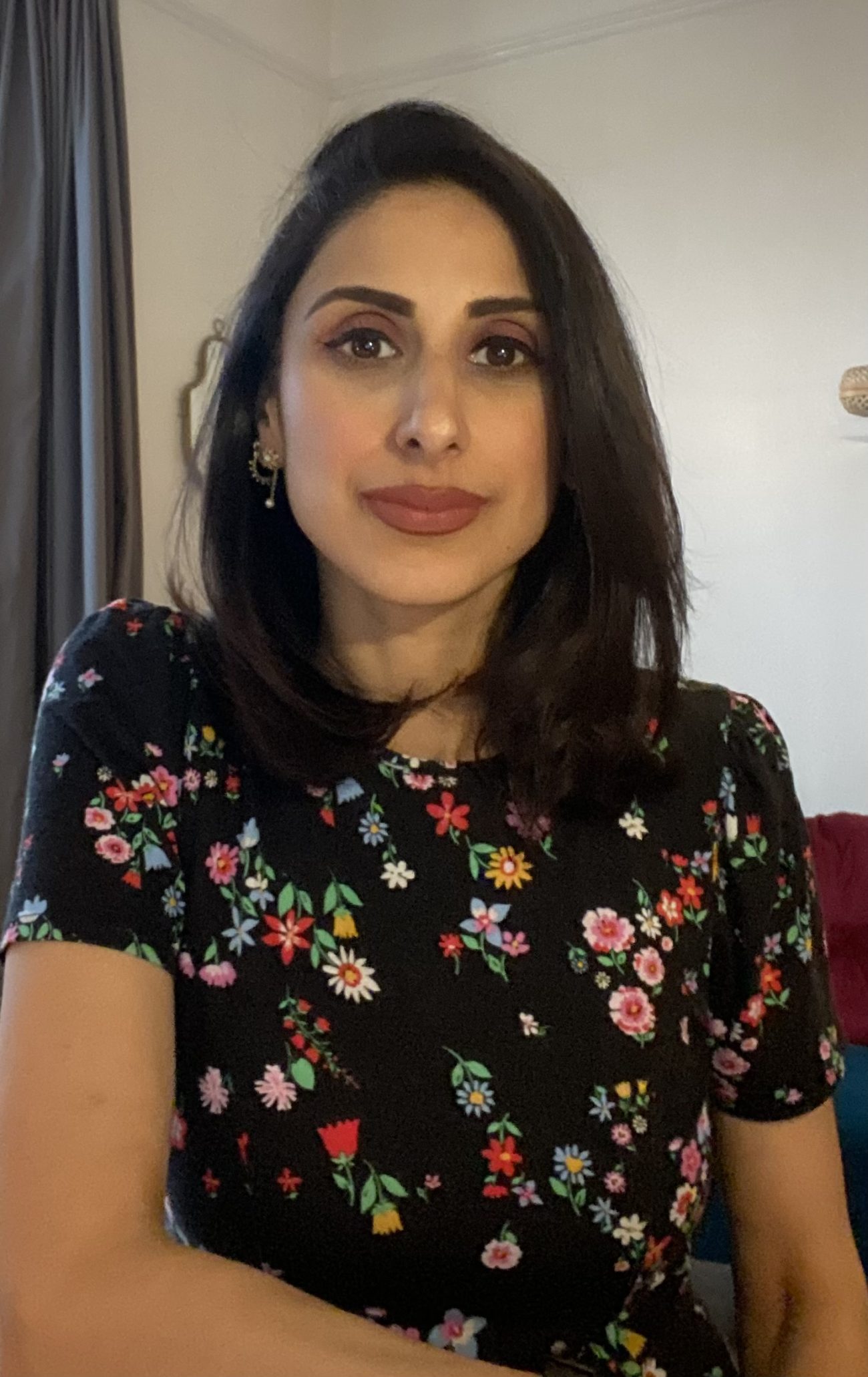
AIPS Book Prize Awardee
Congratulations to Dr. Sanaa Alimia (Associate Professor, Aga Khan University) for receiving the 2025 AIPS Book Prize! Her book, Refugee Cities: How Afghans Changed Urban Pakistan, published by the University of Pennsylvania Press, was the committee’s unanimous choice for this award given its enormous contribution to Pakistan Studies. As noted by the AIPS Book Prize Committee, this book “explores … Read more
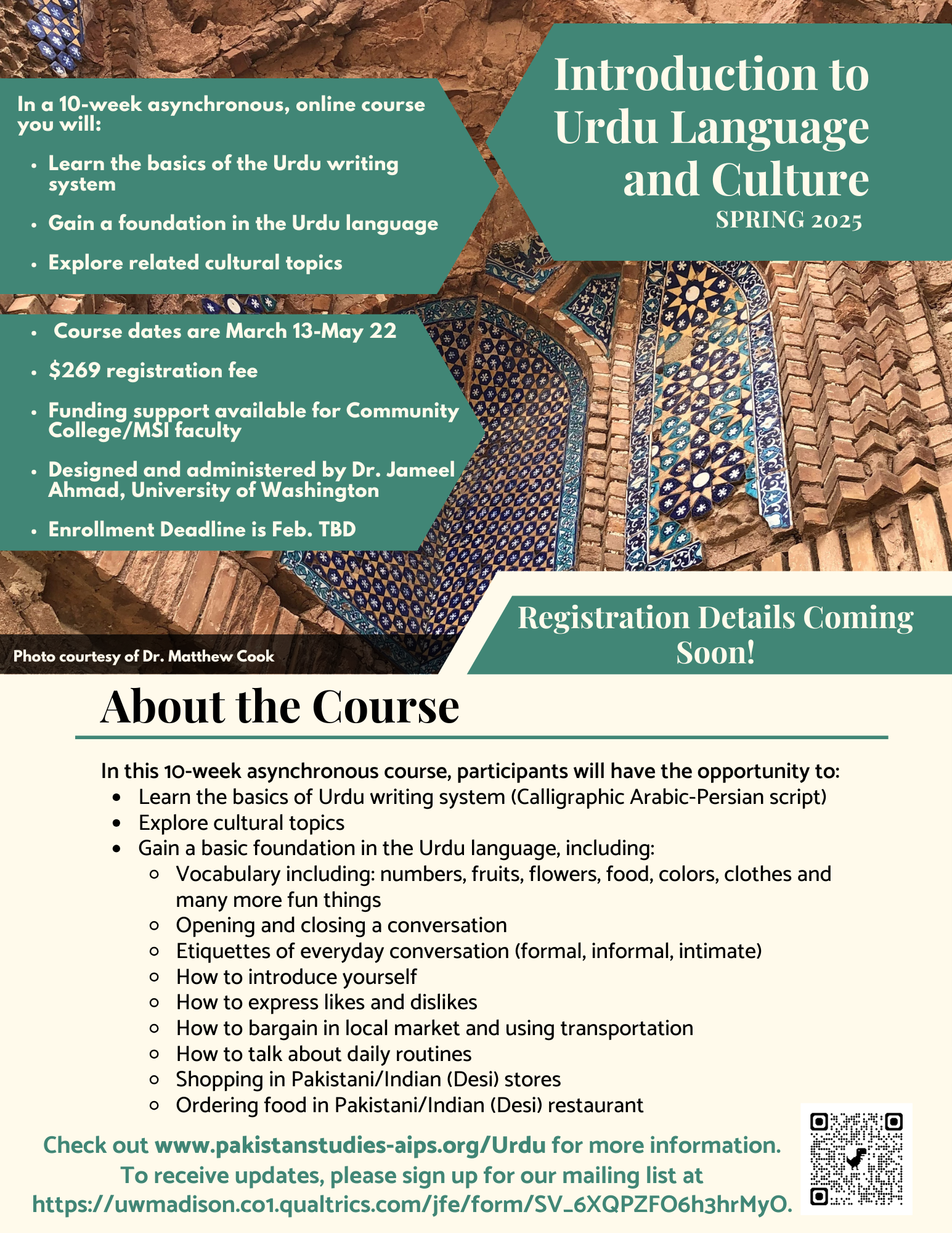
Spring 2025 Introduction to Urdu Language and Culture
AIPS is excited to share our Spring 2025 Introduction to Urdu Language and Culture! This 10-week asynchronous, online course will take place March 13 – May 22. Registration details are forthcoming!
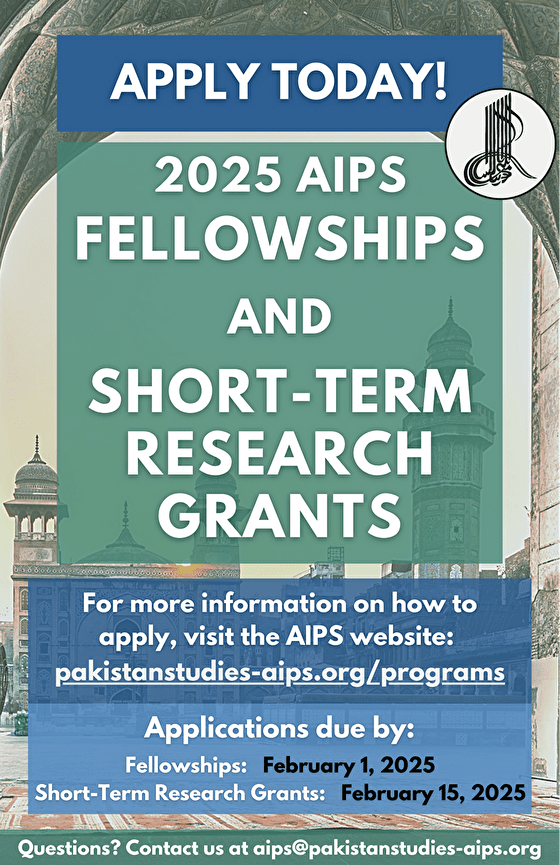
2025 AIPS Fellowships and Short-Term Grant Applications Now Open!
We are now accepting applications for AIPS Fellowships and Short-Term Research Grants! AIPS Fellowships – Apply by February 1 AIPS Short-Term Research Grants – Apply by February 15
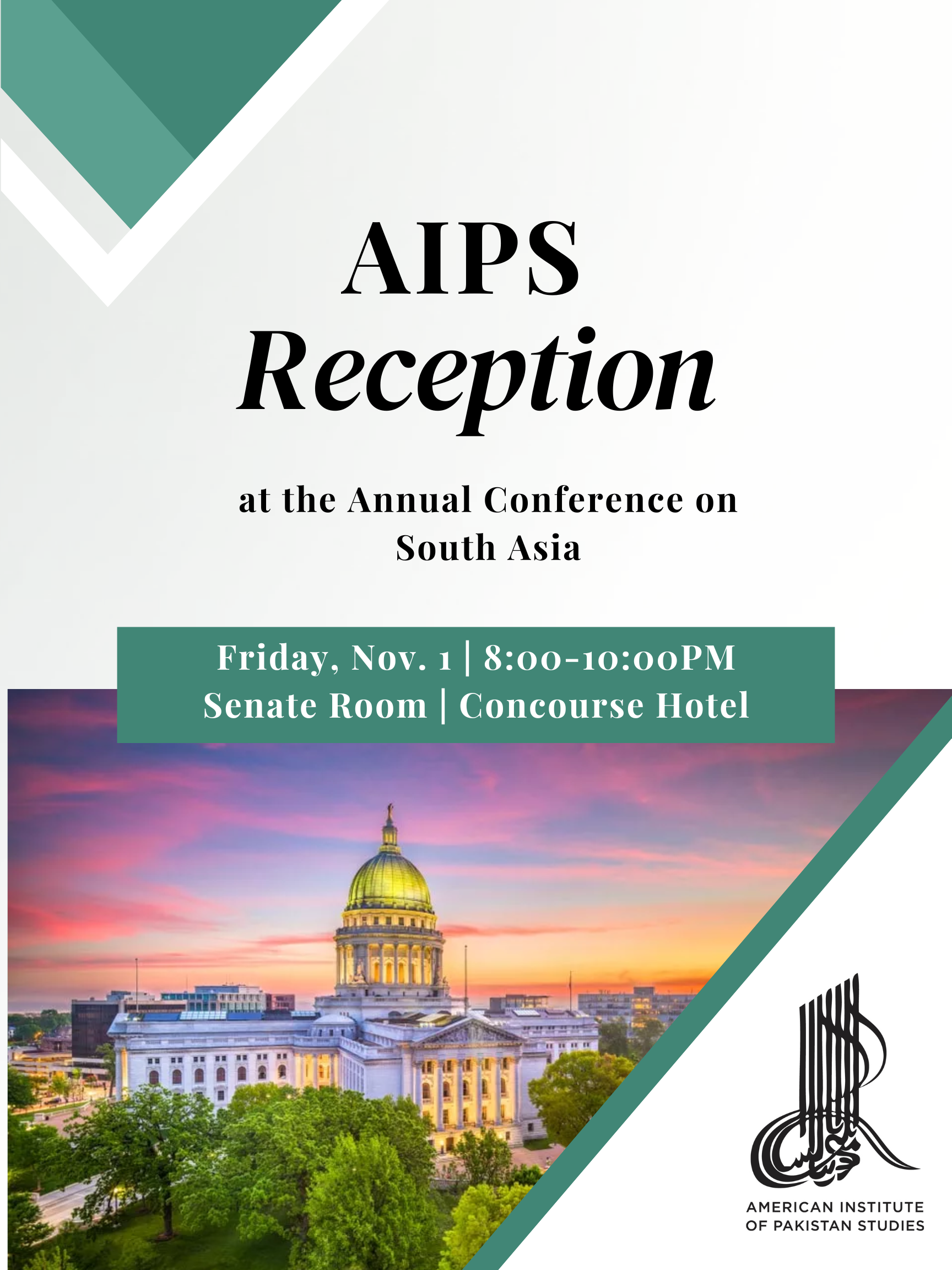
AIPS Reception
AIPS will be holding a reception at the Annual Conference on South Asia on Friday, November 1. The reception will be held in the Senate Room at the Concourse Hotel. Come join and connect with AIPS colleagues!
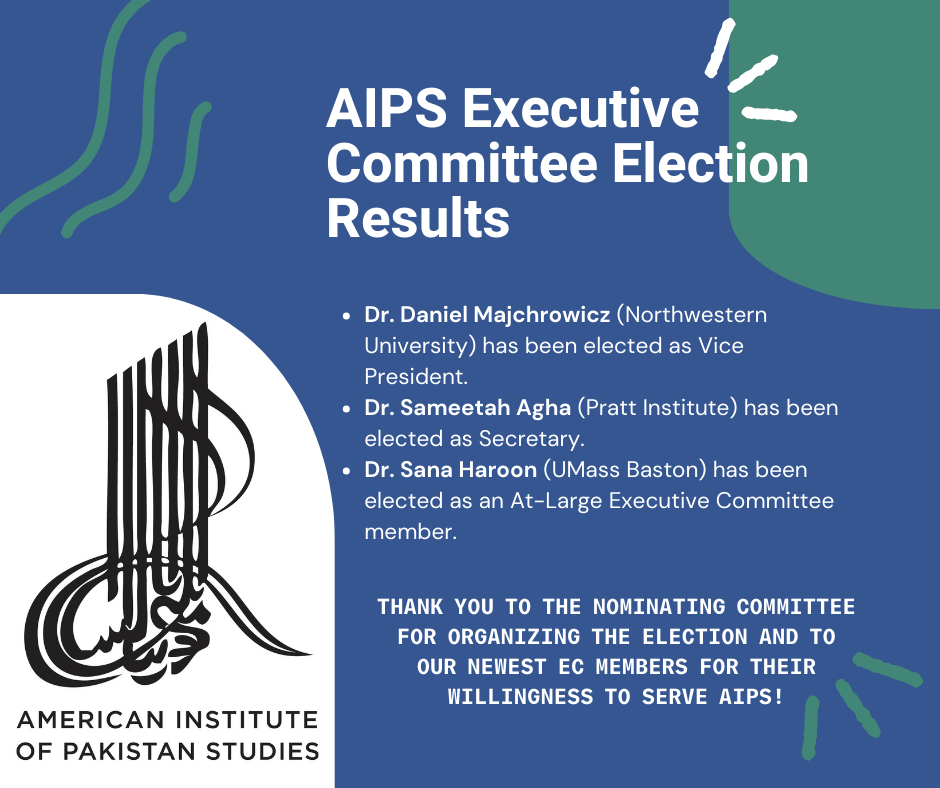
AIPS Executive Committee Election Results
Congratulations to Dr. Daniel Majchrowicz (Northwestern University) on his election as AIPS Vice President, Dr. Sameetah Agha (Pratt Institute) on her election as AIPS Secretary, and Dr. Sana Haroon (UMass Boston) on her election as an At-Large Executive Committee member. Thank you to the nominating committee for organizing the election and to our newest EC … Read more
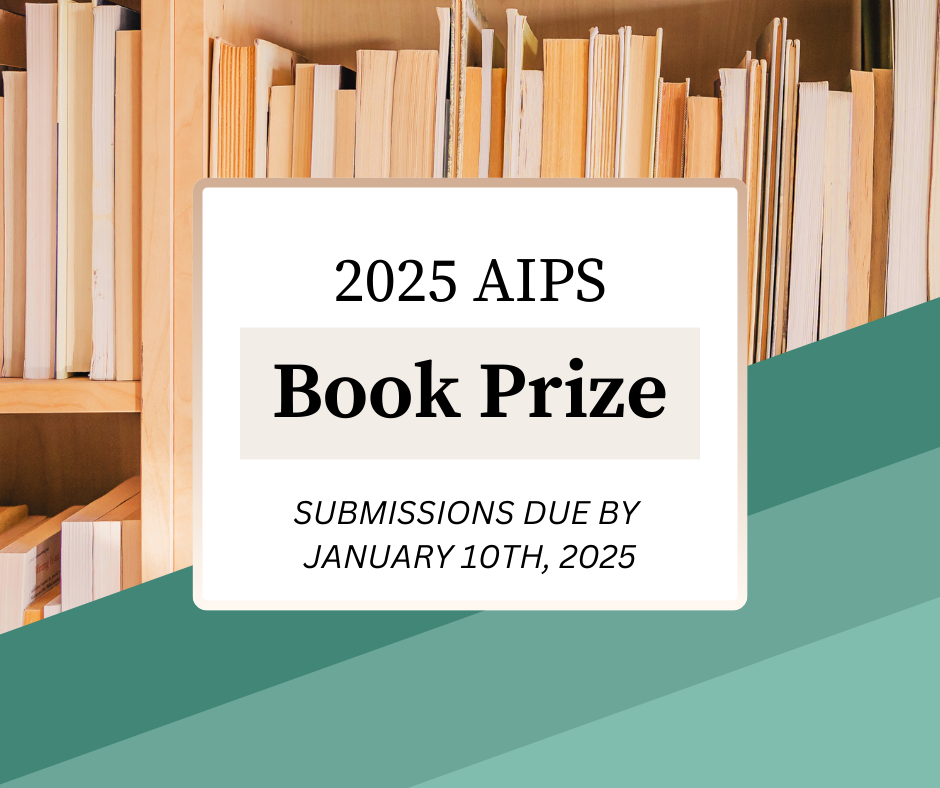
2025 AIPS Book Prize
AIPS is soliciting books (published during the last three years) for the annual AIPS book prize! The award recipient will receive a monetary prize from AIPS ($1,000). Interested applicants should contact AIPS to confirm eligibility before sending books. For more information on the book prize and specific requirements, as well as past prize recipients, see … Read more
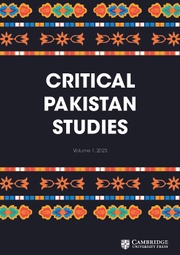
Latest Issue of Critical Pakistan Studies Out Now!
The latest full issue of Critical Pakistan Studies is now out! All articles are available to read online.

2024 AIPS Fellowships and Short-Term Research Grants Awarded!
AIPS is excited to announce the Short-Term Research Grantees and Fellowship Recipients for 2024. Congratulations to Shafaq Sohail, Faria Shaikh, Aqib Ali, Noormah Rizwan, Shuyan (Michael) Huang, Asif Mehmood, Muhammad Rizvan Saeed, Ilsa Abdul Razzak, and Muhammad Osama Imran for receiving Short-Term Research Grants and congratulations to Adeem Suhail, Ilqua Lutfi, Asif Sandeelo, Kamini Masood, … Read more
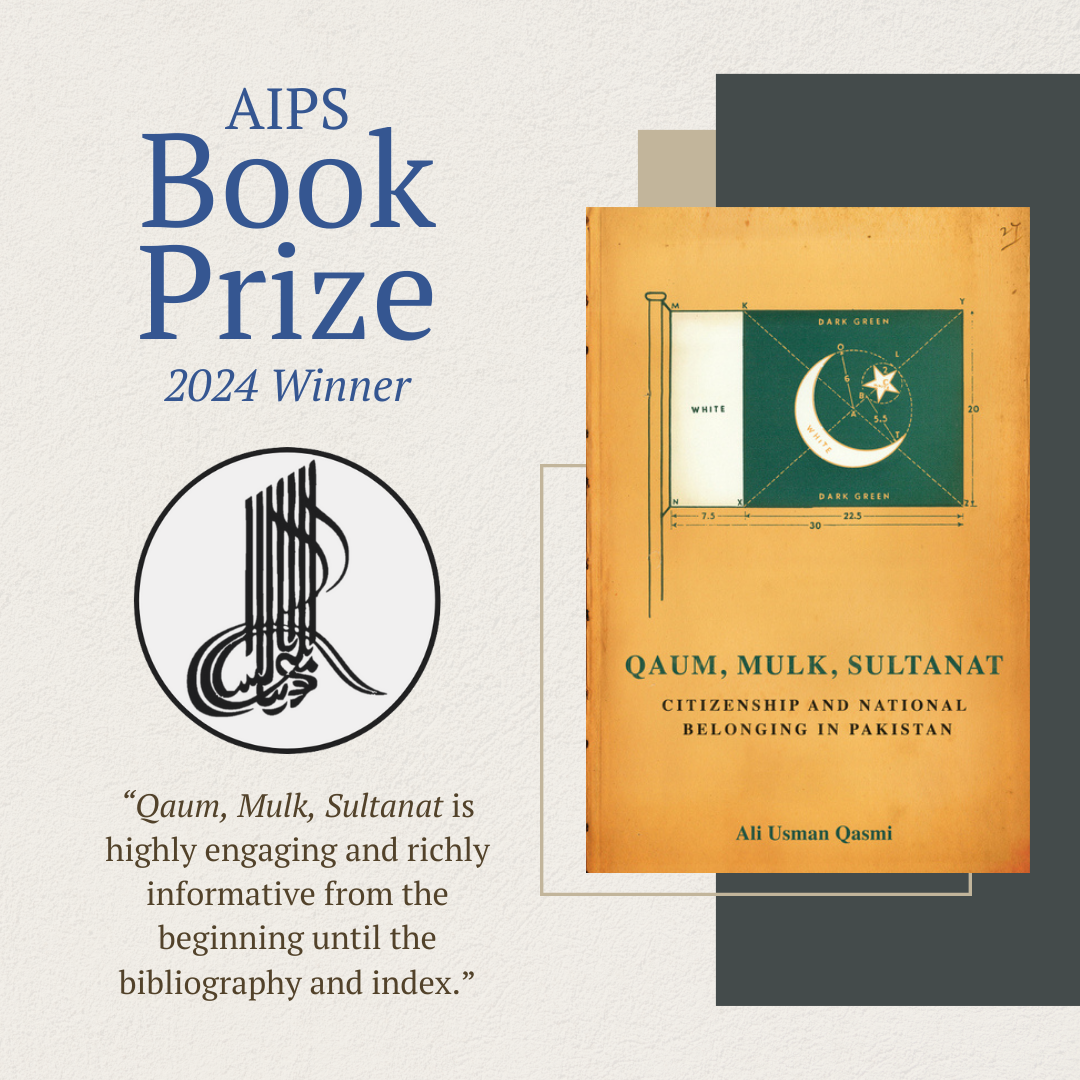
2024 AIPS Book Prize
Congratulations to Dr. Ali Usman Qasmi (Assistant Professor, Lahore University of Management Sciences) for receiving the 2024 AIPS Book Prize for his book Qaum, Mulk, Sultanat: Citizenship and National Belonging in Pakistan! The committee found this book to be “a significant and original contribution to Pakistan Studies and South Asia Studies, and to the study … Read more
First Issue of Critical Pakistan Studies Released
The first articles of Critical Pakistan Studies are now available! There are currently 8 articles that are publicly available via "FirstView" on Cambridge University Press's website. Critical Pakistan Studies is an interdisciplinary journal that publishes primary source interpretive research that, in addition to Pakistan and Pakistanis, analyzes, discusses, and seeks to understand the varied and … Read more
Call for Papers: Special Issue with Critical Pakistan Studies
Ek Dost Kay Naam: Women’s Writings and Popular Literary Cultures in UrduGuest Editors: Iqra Shagufta Cheema and Fatima Z. Naveed We invite scholars and translators of Popular Urdu literature and art—broadly defined as texts intended to be read by mass audiences—to contribute to a special issue, “Ek Dost Kay Naam: Women’s Writings and Popular Literary … Read more
![Congratulations to our new Individual Member Trustees! (1)[70]](https://pakistanstudies.org/wp-content/uploads/2024/04/Congratulations-to-our-new-Individual-Member-Trustees-170.png)
New Individual Member Trustees
Congratulations to the following AIPS members who were recently elected as Individual Member Trustees on the AIPS Board of Trustees: Dr. Hassan Abbas (National Defense University)Dr. Dean Accardi (Connecticut College)Dr. Natasha Raheja (Cornell University)Dr. Raisur Rahman (Wake Forest University) These Trustees represent AIPS Individual Members on the BOT. Thanks to all for your willingness to … Read more
